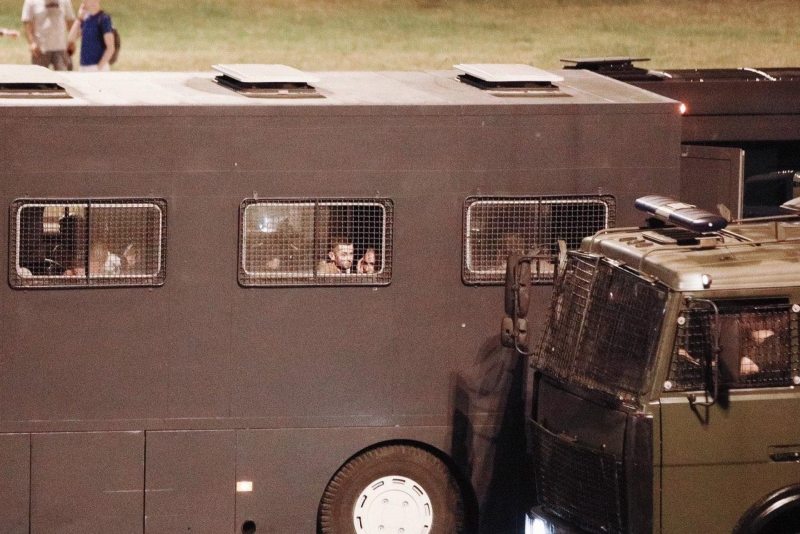"They took away my bra with a breast prosthesis." Survivor stories
The Human Rights Center “Viasna” and the World Organization Against Torture (OMCT) launched a campaign to document cases of torture, cruel, inhuman and degrading treatment of protesters on August 9-13. Some testimonies of people who survived torture and violence will be published on our website as evidence of crimes committed by security forces.
Maryia Ambrosava from Minsk told Viasna how she and her husband Yury went to a police station on August 10 to report their son missing, but found themselves in a police van and spent four days in the detention center in Akrescin Street. All these days, they were not aware that their son had been released, so when people were shouting from beatings, Maryia felt it was her son who was screaming.
Maryia's son, 23-year-old Yahor, was detained in the evening of August 10th when he was walking next to Victory Park. He was detained by the riot police and taken to the Maskouski police department because he did not have his passport on him. When he was detained, his arms were twisted, he was immediately handcuffed and beaten until he fainted in the police van. The beatings continued in the police department even though he was lying on the floor in the pool of blood.
"Half-conscious, my son heard a sadist weighing like 200 kg say: 'When you set him free, let him pass by me.' The next day after another beating (the fifth or sixth time) and an epilepsy attack, Yahor was thrown out of the Maskouski police department," says Maryia.
According to the mother, he had a concussion and is now afraid of leaving the house.
Yahor managed to text his parents that he was detained. Maryia and Yury Ambrosaus immediately started to look for their son around Victory Park and then went to the Tsentralny police department. There, a duty police officer suggested reporting their son missing. According to Maryia, she and her husband tried to file the report, but the police did not accept it, because suddenly they found themselves in a strange situation.
"At 10.50 pm, two police vans and several buses with riot police drove to the police department. Our crowd of six men and eight women were surrounded by about fifty riot police officers. My husband and I were persuaded by the riot police commander to voluntarily get on the bus, as we were allegedly violating public order and would be fined. We were taken to another place and transferred to a police van that took us to the detention center. There, a horror movie became a reality. When we arrived, we were driven like cattle with batons and punches into the basement. There were bloodstains on the floor. We were put facing the wall, arms behind back."
According to Maria, each woman was approached by the detention center staff and asked for her name, where she had been detained, and then hit in the face with the words: "Speak up, bitch."
"They did not know that there were Belsat channel journalists among us, so they shouted: 'Where did you learn to speak Belarusian?' They twisted our arms and pushed us into undressing rooms. They never listed our belongings. They took away my bra with a breast prosthesis and a bandage that I put under my silicone breast. I decided to put a scarf on my head for hygiene, but the warden rushed to me and pulled down the scarf shouting: 'Grandma, you were standing on the square,' hit me against the wall, twisted my arms, and dragged me into the corridor with screams and curses."
Maryia says that everyone was kneeled against the wall and kicked.
"Then they brought our naked husbands, they drove women past us screaming and cursing, beating them with batons all over the body. After that, they chased us to the second floor into the cell. They twisted our arms, bent us almost to the floor, beat and kicked us. My husband said that men had been beaten with a baton on their genitals."
Maria spent the next three days in a 10-square-meter cell with 36 women.
"We were not properly fed, we all had to drink water from one plastic bottle. We heard the constant wailing of beaten people in the corridor and the yard, the cursing of the guards. I have not seen anything similar in a horror movie.
One night, 20 girls were pushed into our room. Now we were 51 in the cell. These girls were glad that they got into a warm cell with a toilet. They told us that the police literally piled men along the fence, made them sing the hymn, and beat them until the faeces came out. We heard these cries of terror. It seemed to me that my son was screaming. It feels like that needle in my heart won't let go. We were told that we had to squeeze because 700 more people were to arrive."
Maryia and other cellmates were fed for the first time 30 hours after the detention:
"We were brought as many as six loaves of bread and fed with porridge. That was the most delicious bread. We tore it apart, watched one another so that not a single crumb fell. We washed it down with water from the bottle.
Everyone in the cell was suffocating, and the woman who had diabetes fainted all the time. Her medication was denied, in the morning a new warden came and called a doctor. We started knocking, and the girls were taken away. We were left with 36 people in our cell.
In the evening of August 13th, six men persuaded us to sign a report stating that we had been at the barricades and rallies. One girl agreed, but of course, she was not released. They drove us into the cell again. A girl's leg was injured, and she was slightly behind us. The guard 'helped' her: 'Faster, bitch.' She hit her on a sore spot and dragged into a cell. The girl's ligaments were broken. Some of the detained were ambulance medics. They demanded a doctor. And only in the morning, when that guard changed, the doctor was called. The girl's leg was bandaged and she was put under the bed. She was half-conscious for 24 hours, wouldn't drink or go to the toilet until we were released."
Maria says that the detention center administration did not list her and Yury among the detainees. Her relatives could not find them and they were reported missing. Maria was released at 2 am on August 14, and her husband Yury was set free two hours later. They were not allowed to take their belongings or cell phones.
At the moment, Maryia is in poor health, she suspects that she might have contracted COVID-19 in the cell where all women were drinking from one bottle. Now she is on sick leave.
More stories of people who survived police violence and torture:
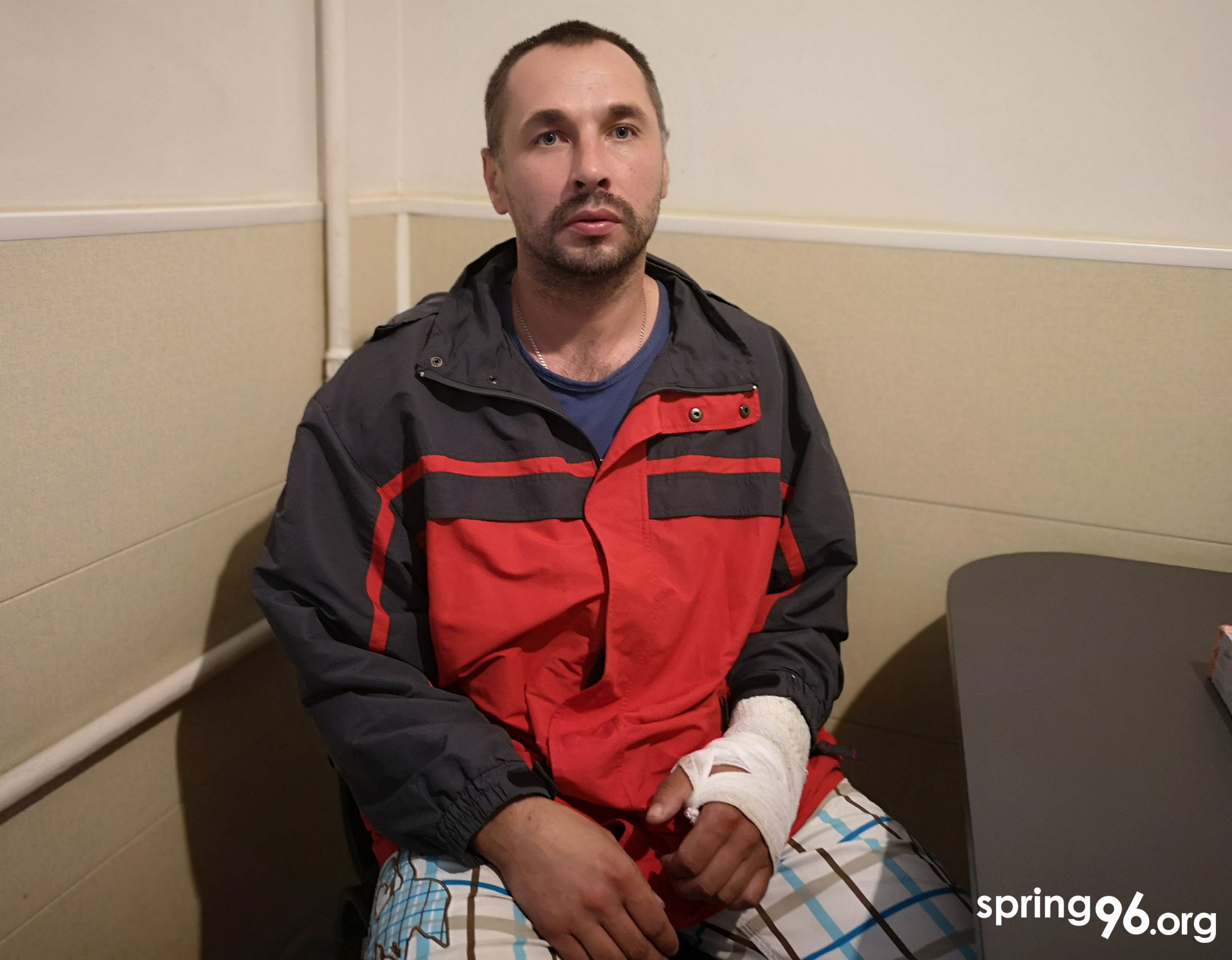
"Road police officers broke my arm during detention." Survivor stories
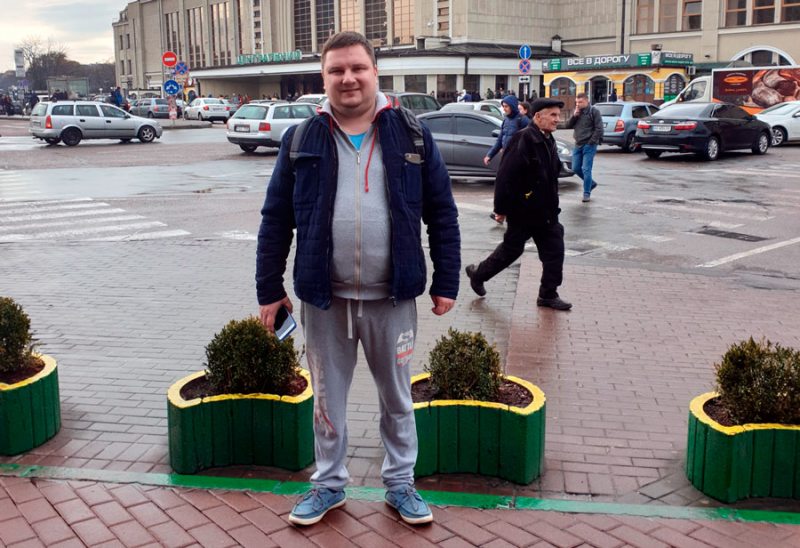
"I was lucky to be a journalist and to have my kidneys thrashed previously." Survivor stories
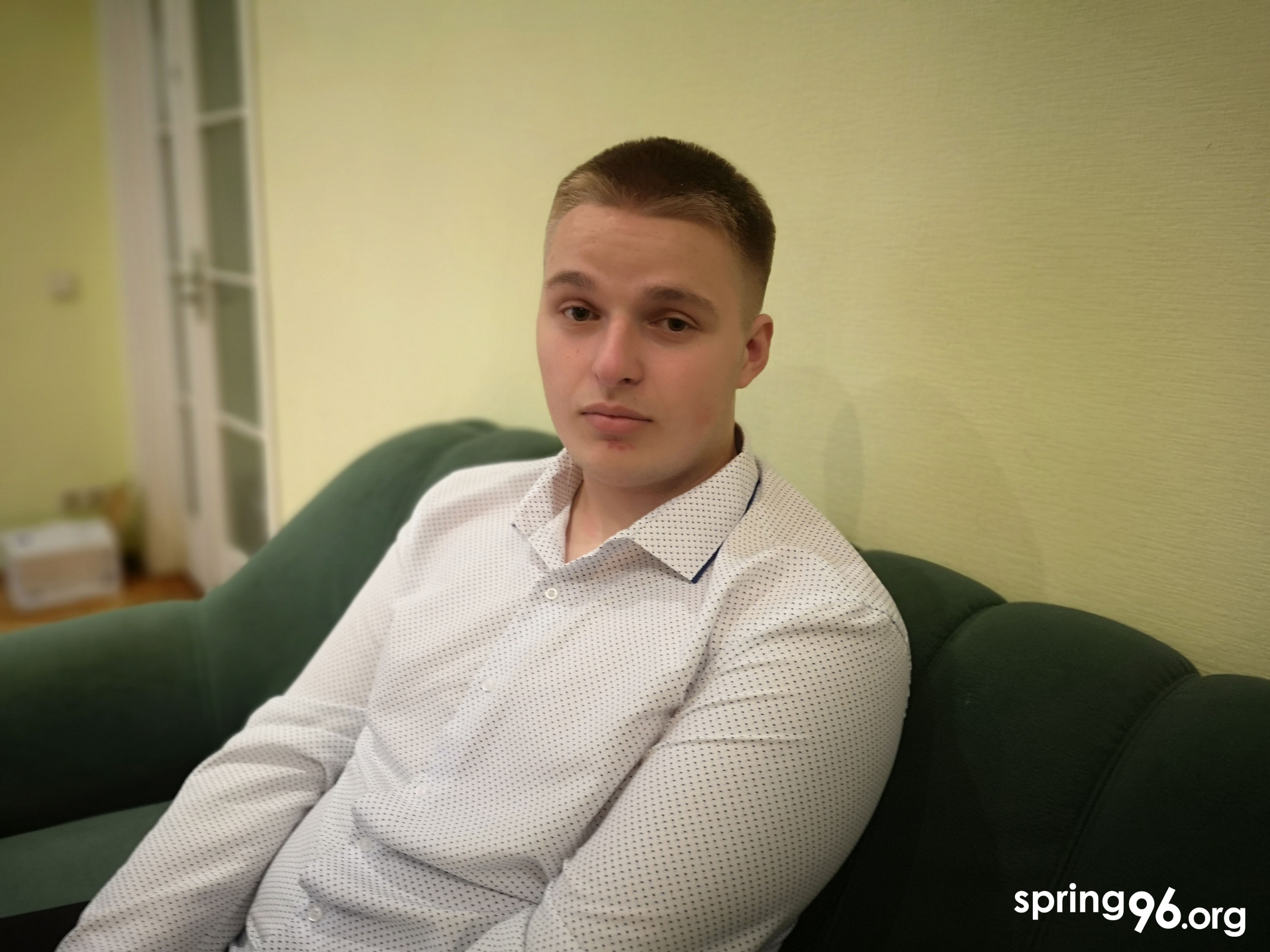
“We will shoot you and you will never be found.” Survivor stories
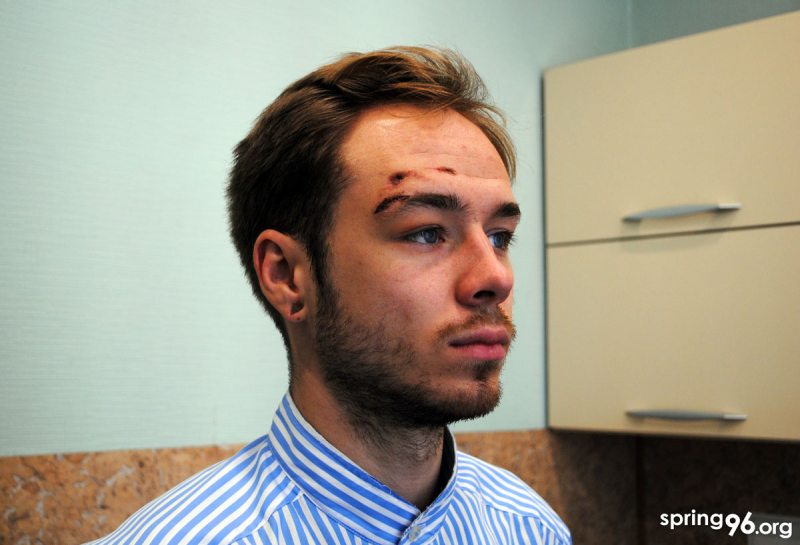
“We were trampled in the police bus.” Survivor stories
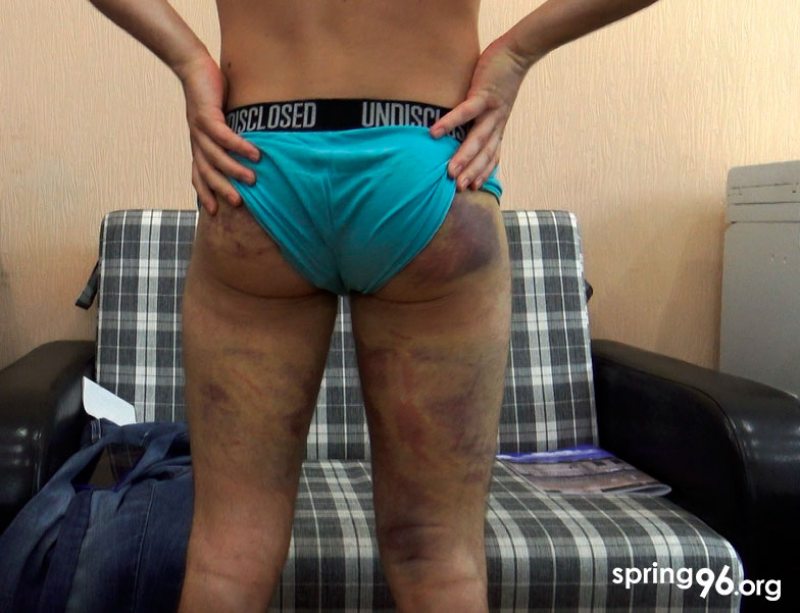
“Now we’ll show you how to s..t your pants." Survivor stories
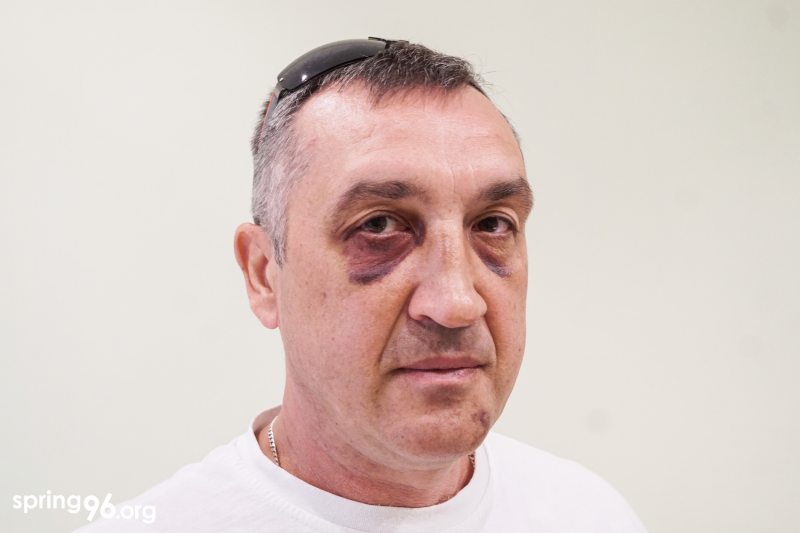
“So you are for Tsikhanouskaya?” Survivor stories
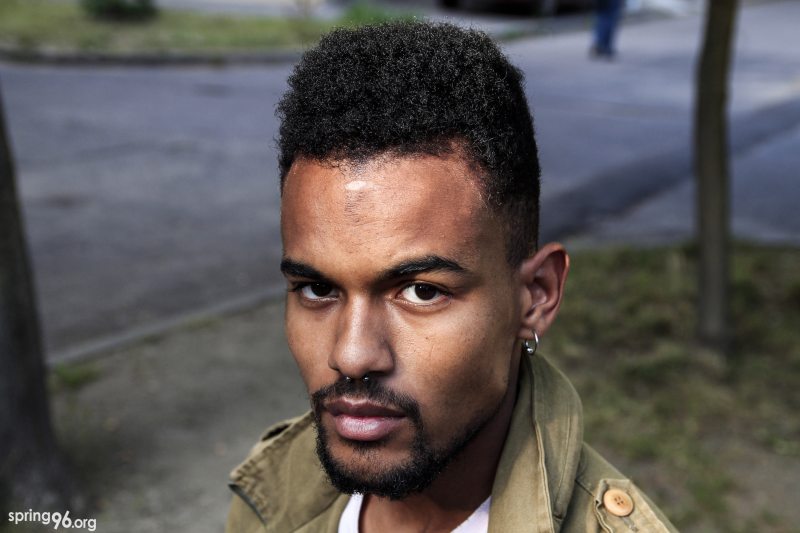
"Officers abused me all the time because I’m black." Survivor stories
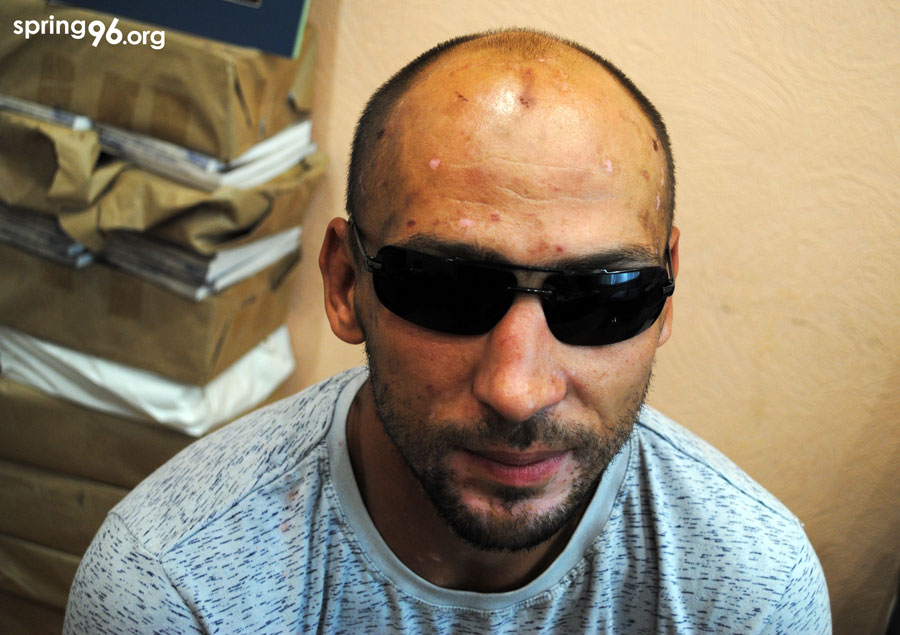
“They kicked me in the head with their police boots.” Survivor stories
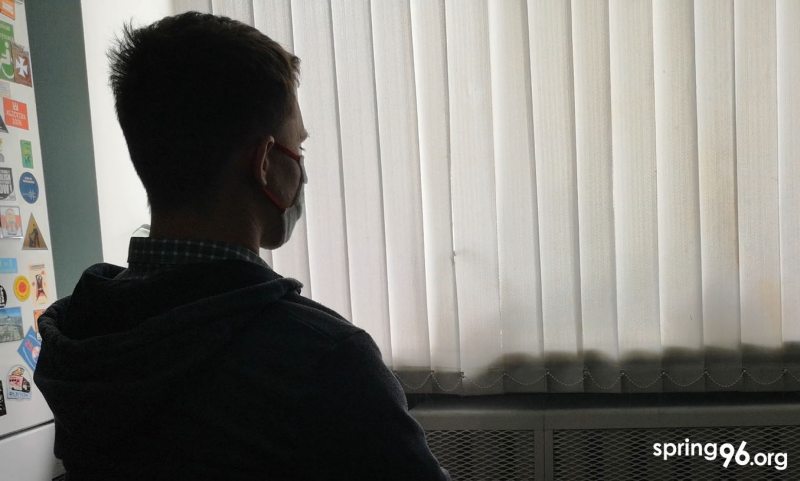
“People were screaming every night.” Survivor stories



